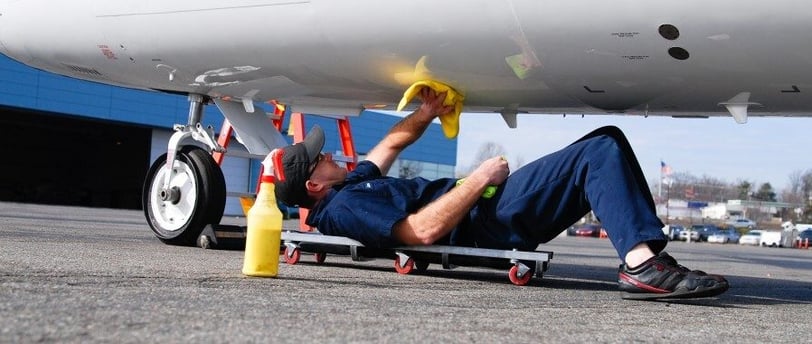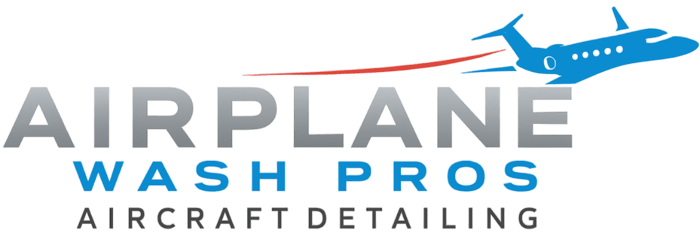How to Maintain Your Aircraft Paint


Paint is more than looks. It protects your aircraft from corrosion, improves fuel efficiency, and helps retain resale value. Whether you're flying a single engine airplane, a turboprop, or a business jet, paint care should be part of your regular maintenance routine.
Here’s a no-nonsense guide to keeping your plane’s paint in top shape, plus smart hacks and pro detailing tips.
1. Wash Smart, Not Hard
Routine: Wash your aircraft every 2 to 4 weeks, depending on flight frequency and storage. Use aviation approved cleaning products only.
Tip: Always wash top-down to avoid re-contaminating cleaned areas. Use soft microfiber mitts or cloths to avoid swirl marks.
Hack: Use a waterless aircraft wash between full cleanings. It saves time, reduces water use, and works well for ramp-side cleanups. Pair it with eco-friendly jet cleaning products for best results.
Mobile Option: If you don’t have time, book mobile aircraft detailing. They’ll handle it on-site with proper tools and supplies.
2. Protect the Finish
Routine: Apply airplane exterior waxing every 3 months. For long-term protection, invest in private jet ceramic coating.
Hack: Use a dual-action polisher for faster, even wax application. Avoid waxes with harsh abrasives that can wear down the paint.
Tip: Ceramic coatings last years and help reduce drag, improving performance. They’re ideal for fuel efficiency aircraft detailing.
Pro Tip: Add jet paint protection film to leading edges, engine inlets, and belly panels to reduce paint damage from debris.
3. Correct Issues Early
Checkpoints: Inspect paint after flights and washes. Look for chips, oxidation, fading, or rough patches.
Action: Schedule aircraft paint correction to restore gloss and remove minor scratches.
Hack: Keep a touch-up paint kit with exact color codes in your hangar. Small chips are easy to fix before they spread or oxidize.
4. Clean Windows the Right Way
Tip: Always use acrylic aircraft window cleaning solutions. Paper towels and glass cleaners will scratch or cloud the surface.
Hack: Wipe in straight lines, not circles. Use a clean microfiber towel, and only wipe when the window is wet to avoid micro-abrasions.
5. Protect the Details
Paint care extends to more than just panels.
Add-On Services:
Aircraft brightwork polishing to maintain spinner cones and leading edges
Turboprop exhaust cleaning to prevent soot staining your paint
Sensitive cockpit cleaning to avoid damage to avionics and controls
Cockpit detailing services for a clean flight deck
Pro Tip: Keep microfiber towels in the cockpit to wipe off fingerprints from screens and gloss trim between flights.
6. Hire Certified Professionals
Skip the general cleaning crews. Use pros with aviation detailing certification who understand aircraft paint systems.
Best Services to Book:
Private jet cleaning services
Light jet detailing
Mid-size jet cleaning
Small aircraft detailing
Business jet appearance management
Bonus Add-Ons:
Private jet leather conditioning
Aircraft carpet extraction
Aircraft interior deep cleaning
Jet lavatory sanitation
Aircraft de-ice boot treatment
Aircraft cabin disinfection
High touchpoint sanitization jet packages
Extra Hacks and Tools
Bug Removal Hack: Use soaked dryer sheets inside a soft glove to wipe bugs off without scratching the paint.
Water Spot Prevention: Rinse with deionized water to avoid spots and streaks, especially in sunny areas.
Storage Tip: Hangar your aircraft if possible. If not, invest in a fitted cover to protect the paint from UV and moisture.
Emergency Cleaning Kit: Keep a basic detailing bag with waterless wash spray, microfiber cloths, polish wipes, and a bug sponge in your cargo hold or hangar.
Final Takeaway
Paint maintenance is fast and simple if you stay consistent. Whether you're using mobile aircraft detailing services or doing it yourself, the right tools, products, and habits will make your aircraft look and perform better for years.
Want to impress your passengers, protect your investment, and fly confidently? Keep your paint clean, protected, and detailed.
Contact
Get in touch for your airplane cleaning needs.
Support
Follow
contact@airplanewashpros.com
+1 619-383-5893
© 2025. All rights reserved.
